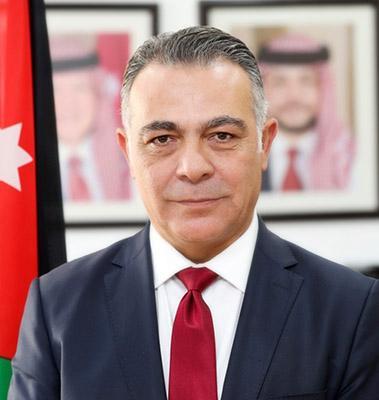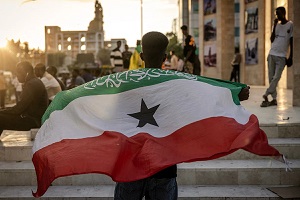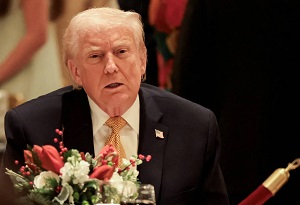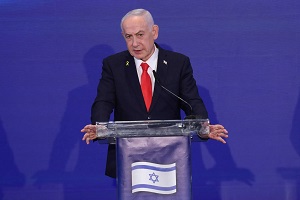Kingdom ‘determined’ to continue economic reforms — Rabadi

The Jordan Times
AMMAN — Minister of Planning and International Cooperation Wissam Rabadi on Sunday said the Kingdom is determined to continue with its economic reform process to ensure a stronger economy in wake of the challenges that are expected from the COVID-19 crisis.
“Jordan is committed to fasten its economic reforms to improve several vital sectors’ performances to meet the expected challenges that will surface because of the COVID-19 crisis,” Rabadi said.
The minister was speaking during an online session that was organised by the Jordan Strategy Forum and titled: “Jordan and the World Bank: Partnership and Opportunities Recover Following the COVID-19 Crisis” that also saw the participation of Tania Meyer, the World Bank representative to Jordan and other international and local officials and moderated by former minister Ibrahim Saif.
Rabadi described the situation following the end of the COVID-19 as “unclear and ambiguous”.
“The situation is still ambiguous to us and we are following up on these developments day by day … the coming days will be decisive,” Rabadi added.
Some of the main challenges, according to the minister, “is to support the private sector that is expected to be hit the hardest following this crisis”.
At the same time, Rabadi added that several sectors showed some “promising advancement”, such as the health sector and the “digital transformation that was adopted by the government”.
“We also see many promising opportunities in the agriculture sector and are examining ways to increase its added value so that it can reflect possibility on the food safety of the country and possible export to other countries,” Rabadi said.
The minister pointed out that “the Kingdom’s handling of the COVID-19 crisis placed Jordan in a good place among countries of the world”.
“Our quick actions helped us get more support and quick response from our friends who supported us and our efforts,” he said.
Rabadi voiced the Kingdom’s appreciation to the World Bank’s support during these difficult times.
Last month, the World Bank approved a $20 million project to help Jordan face the health impacts of the COVID-19 outbreak. The new COVID-19 Emergency Response project will support the Ministry of Health’s efforts in preventing, detecting and responding to the threat posed by the pandemic and strengthen public health preparedness.
During the online session, Meyer stressed that the Kingdom will remain one of “the World Bank’s longstanding partners and we will stay engaged with Jordan to mitigate the impact of COVID-19”.
“We are exploring offering additional financing for the health and other major sectors in Jordan in the form of emergency cash, which will also help fund programmes to support the households and the most vulnerable who were affected the most by the COVID-19 crisis,” Meyer said.
The World Bank official said the expected amount of support ranges between $250 million to $300 million.
Meyer added that the World Bank took steps to restructure the $3 billion fund to Jordan to face the impact of the COVID-19 crisis.
Regional Manager of the International Finance Corporation Dalia Wahbeh, who also spoke during the event, stressed the need to focus on supporting the private sector in Jordan when addressing the challenges that were created as a result of COVID-19.
“The focus should be geared towards providing liquidity to enhance the business environment by boosting the work of the private sector to minimise job losses,” Wahbeh said.
Merza Hasan, executive director and dean of the board of executive directors at the World Bank Group (WBG), also stressed the need to support the private sector and provide the necessary liquidity to keep the sector operating.
“It is important to safeguard the work of the private sector to ensure better employment rates especially that bankrupt private businesses create more financial problems than when this sector is supported,” Hasan said.
Hasan stressed that the World Bank, through certain specialised units, closely monitors countries’ process of spending their loans.
Latest News
-
 Syrian Army Enters Latakia, Tartus after Attacks by Regime Remnants
Syrian Army Enters Latakia, Tartus after Attacks by Regime Remnants
-
 Jordan, Arab, Islamic countries reject Israel’s recognition of Somaliland
Jordan, Arab, Islamic countries reject Israel’s recognition of Somaliland
-
 Trump Says Had 'Productive' Call with Putin Ahead of Zelensky Meeting
Trump Says Had 'Productive' Call with Putin Ahead of Zelensky Meeting
-
 Netanyahu to Meet Trump in US on Monday for Talks on Iran, Gaza, Hezbollah, Syria
Netanyahu to Meet Trump in US on Monday for Talks on Iran, Gaza, Hezbollah, Syria
-
 JMD forecasts heavy rain, brisk winds, low visibility
JMD forecasts heavy rain, brisk winds, low visibility